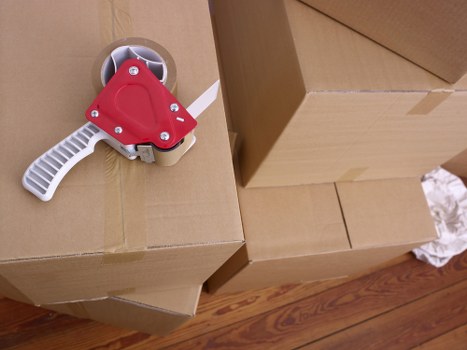Effective Waste Disposal Ware Solutions for a Cleaner Environment

Managing waste effectively is crucial for maintaining a clean and healthy environment. Proper waste disposal ware plays a significant role in this process by ensuring that waste is collected, sorted, and processed efficiently. Whether at home, in the workplace, or in public spaces, having the right disposal solutions can make a substantial difference.
Waste disposal ware includes a variety of containers and equipment designed to handle different types of waste. From simple trash bins to advanced recycling systems, these tools help in segregating waste, reducing pollution, and promoting sustainability. Understanding the different types of waste disposal ware available can help individuals and organizations choose the best options for their specific needs.
In this article, we will explore the various aspects of waste disposal ware, including types, benefits, best practices, and local solutions near Ware. By the end, you’ll have a comprehensive understanding of how to manage waste effectively and contribute to a greener planet.
Types of Waste Disposal Ware

Choosing the right type of waste disposal ware is essential for efficient waste management. There are several types available, each designed to handle specific kinds of waste.
1. Trash Bins: These are the most common type of waste containers used for everyday trash. They come in various sizes and materials, suitable for both indoor and outdoor use.
2. Recycling Bins: Specifically designed for recyclable materials such as paper, glass, and plastics. They help in segregating recyclables from general waste, making recycling processes more efficient.
3. Compost Bins: Used for organic waste like food scraps and yard waste. Composting reduces the amount of waste sent to landfills and produces valuable compost for gardening.
4. Hazardous Waste Containers: These containers are designed to safely store hazardous materials like chemicals, batteries, and electronic waste. Proper disposal prevents environmental contamination and health risks.
5. Medical Waste Bins: Used in healthcare settings to dispose of medical waste such as used syringes, gloves, and other biohazard materials. These bins ensure safe handling and disposal to prevent the spread of infections.
Benefits of Proper Waste Disposal Ware

Investing in proper waste disposal ware offers numerous benefits, both environmentally and economically.
- Environmental Protection: Proper waste disposal reduces pollution and conserves natural resources by ensuring waste is handled responsibly.
- Health and Safety: Prevents the spread of diseases by safely managing hazardous and medical waste, protecting both individuals and communities.
- Cost Savings: Efficient waste management can lower disposal costs and reduce the need for frequent waste collection services.
- Compliance: Adhering to local regulations and guidelines for waste disposal helps avoid fines and legal issues.
- Community Aesthetics: Cleaner environments enhance the visual appeal of public and private spaces, contributing to overall community well-being.
By choosing the appropriate waste disposal ware, individuals and organizations can significantly impact their surroundings and promote sustainable living practices.
Best Practices for Using Waste Disposal Ware

Implementing best practices when using waste disposal ware ensures maximum efficiency and effectiveness in waste management.
1. Segregate Waste: Separate waste into different categories such as recyclables, organic waste, and hazardous materials. This makes processing and recycling more manageable.
2. Use Appropriate Containers: Choose containers that are suitable for the type and volume of waste. For instance, use heavy-duty bins for construction debris and smaller bins for office waste.
3. Label Clearly: Proper labeling helps users identify the correct container for each type of waste, reducing contamination and improving sorting accuracy.
4. Regular Maintenance: Keep waste disposal ware clean and in good condition to prevent odors, pests, and contamination. Regular maintenance also extends the lifespan of containers.
5. Educate and Train: Provide training for employees or household members on proper waste segregation and disposal practices to ensure compliance and effectiveness.
Adhering to these best practices not only enhances waste management processes but also fosters a culture of responsibility and sustainability.
Innovative Waste Disposal Solutions

Advancements in technology have led to innovative waste disposal solutions that address modern waste management challenges.
Smart Bins: Equipped with sensors, smart bins can monitor waste levels in real-time and optimize collection routes, reducing operational costs and improving efficiency.
Automated Sorting Systems: These systems use AI and robotics to sort waste automatically, increasing accuracy and speed in processing recyclable materials.
Composting Machines: Modern composting machines accelerate the decomposition of organic waste, producing compost faster and more efficiently for agricultural use.
Recycling Robots: Robots designed to identify and sort different types of recyclables enhance the precision and scalability of recycling operations.
Embracing these innovative solutions can significantly improve waste management practices, making them more sustainable and effective in the long run.
Local Waste Disposal Solutions Near Ware

Ware and its surrounding areas offer a variety of waste disposal solutions tailored to meet the needs of residents and businesses alike. Below are some of the closest areas to Ware that provide effective waste management services.
- St Albans: Located just a few miles from Ware, St Albans offers comprehensive recycling services and hazardous waste disposal facilities.
- Welwyn Garden City: Known for its eco-friendly initiatives, this area provides extensive composting options and community recycling centers.
- Hitchin: Hitchin features specialized medical waste disposal services, ensuring safe handling of healthcare-related waste.
- Royston: With a focus on sustainable practices, Royston offers both traditional and innovative waste disposal ware solutions.
- Bishop's Stortford: This area provides convenient waste collection services and environmental education programs.
- Stevenage: Stevenage is home to advanced waste sorting facilities and smart waste management systems.
- Harpenden: Offering a range of waste disposal options, Harpenden emphasizes recycling and waste reduction initiatives.
- Welwyn Welwyn provides tailored waste disposal solutions for both residential and commercial areas.
- Cheshunt: Known for its efficient waste collection services, Cheshunt ensures timely and reliable waste management.
- Waltham Cross: Waltham Cross offers specialized containers for different waste types, promoting effective segregation.
Residents and businesses in Ware can take advantage of these nearby areas' resources to enhance their waste management practices and contribute to a cleaner environment.
Choosing the Right Waste Disposal Ware for Your Needs

Selecting the appropriate waste disposal ware depends on several factors, including the type of waste, volume, and specific requirements of the location.
Assess Your Waste: Start by evaluating the types and amounts of waste you generate. This will help determine the necessary containers and facilities needed.
Consider Capacity: Choose containers that can handle the volume of waste you produce without requiring frequent emptying. Oversized bins might be necessary for businesses, while smaller bins are suitable for households.
Material and Durability: Depending on where the waste disposal ware will be placed, consider materials that can withstand environmental conditions. For outdoor use, weather-resistant materials like steel or heavy-duty plastic are ideal.
Ease of Use: Containers should be user-friendly, with features like easy lifting, secure lids to prevent spills, and clear labeling for different waste types.
Cost-Effectiveness: Balance the initial investment with long-term benefits. Quality waste disposal ware might have a higher upfront cost but can save money over time through durability and efficiency.
By carefully evaluating your specific needs and considering these factors, you can choose the most effective waste disposal ware to ensure efficient and sustainable waste management.
Environmental Impact of Waste Disposal Ware

The environmental impact of waste disposal ware is significant, influencing various aspects of sustainability and ecosystem health.
Reduced Landfill Usage: Properly managed waste disposal ware minimizes the amount of waste sent to landfills, conserving space and reducing methane emissions from decomposing waste.
Enhanced Recycling Rates: By facilitating the segregation and collection of recyclables, waste disposal ware increases recycling rates, conserving natural resources and reducing energy consumption.
Pollution Prevention: Effective waste disposal prevents the leakage of harmful substances into the soil, water, and air, safeguarding ecosystems and human health.
Resource Conservation: Recycling and composting through proper waste disposal ware conserve valuable resources by reusing materials and returning organic matter to the soil.
Climate Change Mitigation: Reducing waste and improving recycling processes contribute to lower greenhouse gas emissions, helping to combat climate change.
Implementing the right waste disposal ware is a critical step towards achieving environmental sustainability and protecting our planet for future generations.
Technological Advancements in Waste Disposal

Technology continues to revolutionize waste disposal, making processes more efficient and sustainable.
Automation and Robotics: Automated systems and robots are increasingly used in sorting and processing waste, improving accuracy and speed while reducing human labor.
Artificial Intelligence: AI algorithms optimize waste collection routes, predict waste generation patterns, and enhance recycling processes by accurately identifying materials.
Internet of Things (IoT): IoT-enabled waste bins can monitor fill levels, track waste generation, and communicate with waste management services for timely collection.
Advanced Recycling Technologies: New technologies enable the recycling of previously non-recyclable materials, expanding the scope of recycling programs and reducing overall waste.
Energy Recovery Systems: Technologies that convert waste into energy, such as waste-to-energy plants, provide alternative energy sources while reducing landfill dependency.
These technological advancements enhance the effectiveness of waste disposal ware, making waste management more sustainable and responsive to growing environmental challenges.
Challenges in Waste Disposal Management

Despite advancements, waste disposal management faces several challenges that need to be addressed to improve efficiency and sustainability.
Increasing Waste Generation: With population growth and urbanization, the amount of waste generated is continuously rising, putting pressure on existing disposal systems.
Limited Recycling Infrastructure: In many areas, inadequate recycling facilities hinder effective waste segregation and processing, leading to higher landfill usage.
Contamination of Recyclables: Improper sorting and contamination of recyclable materials reduce their quality and usability, making recycling less efficient.
Financial Constraints: Implementing advanced waste disposal systems and maintaining infrastructure requires significant investment, which can be a barrier for some communities.
Behavioral Barriers: Lack of public awareness and participation in proper waste segregation and disposal practices hampers the effectiveness of waste management programs.
Addressing these challenges requires a multifaceted approach, including technological innovation, increased investment, community engagement, and policy support to create a more sustainable waste disposal system.
The Role of Community in Waste Disposal

Communities play a pivotal role in effective waste disposal management. Active participation and collaboration among residents, businesses, and local authorities can lead to significant improvements in waste handling and sustainability.
Education and Awareness: Informing community members about the importance of proper waste disposal and the benefits of recycling fosters responsible behavior and increases participation rates.
Community Programs: Initiatives like neighborhood clean-ups, recycling drives, and composting workshops encourage collective action and create a sense of shared responsibility.
Local Policies: Implementing community-specific policies and guidelines for waste disposal ensures that local needs and challenges are addressed effectively.
Collaboration with Businesses: Partnering with local businesses to promote sustainable practices and provide waste disposal solutions enhances overall community efforts towards waste management.
Incentives and Rewards: Providing incentives for proper waste disposal and recycling can motivate individuals and organizations to adopt better waste management practices.
By fostering a strong sense of community involvement, waste disposal efforts become more efficient, sustainable, and aligned with the collective goal of a cleaner environment.
Sustainable Practices in Waste Disposal

Sustainability is at the heart of effective waste disposal. Implementing sustainable practices ensures that waste management contributes positively to environmental preservation and resource conservation.
Reduce, Reuse, Recycle: Adhering to the principles of reducing waste generation, reusing materials, and recycling ensures minimal impact on the environment.
Composting: Converting organic waste into compost reduces landfill waste and enriches soil, promoting sustainable agriculture.
Energy Recovery: Utilizing waste-to-energy technologies transforms waste into renewable energy sources, reducing dependence on fossil fuels.
Eco-Friendly Materials: Using containers made from recyclable or biodegradable materials minimizes the environmental footprint of waste disposal ware.
Innovative Design: Designing waste disposal ware for maximum efficiency and minimal environmental impact supports sustainable waste management practices.
Embracing sustainable practices in waste disposal ware not only benefits the environment but also promotes long-term viability and resilience in waste management systems.
Future Trends in Waste Disposal Ware

The future of waste disposal ware is poised for significant advancements driven by technological innovations and changing societal needs.
Smart Waste Management Systems: Integration of AI and IoT in waste disposal ware will lead to more intelligent systems that can adapt to and optimize waste handling dynamically.
Circular Economy Models: Emphasizing the reuse and recycling of materials will drive the design of waste disposal ware that supports circular economy principles.
Biodegradable Containers: The development of biodegradable and compostable waste containers will reduce the environmental impact of waste disposal ware.
Personalized Waste Solutions: Tailoring waste disposal solutions to individual needs and settings will enhance efficiency and user satisfaction.
Enhanced Recycling Technologies: Advances in recycling technologies will allow waste disposal ware to handle a wider range of materials more effectively.
These future trends promise to make waste disposal ware more efficient, sustainable, and aligned with global environmental goals, paving the way for smarter waste management systems.
Conclusion

Effective waste disposal ware is essential for maintaining a clean and sustainable environment. By understanding the types, benefits, and best practices associated with waste disposal, individuals and organizations can make informed decisions that contribute to better waste management.
Embracing innovative solutions and sustainable practices will enhance the efficiency and impact of waste disposal efforts. Additionally, active community involvement and addressing local challenges are crucial for successful waste management.
As technology advances and societal awareness grows, the future of waste disposal ware looks promising, with opportunities for greater sustainability and environmental protection. Taking proactive steps today ensures a healthier planet for future generations.
Frequently Asked Questions (FAQs)

1. What is waste disposal ware?
Waste disposal ware refers to the containers and equipment used to collect, store, and process different types of waste. This includes trash bins, recycling containers, compost bins, and specialized containers for hazardous and medical waste.
2. Why is proper waste disposal important?
Proper waste disposal is crucial for protecting the environment, conserving resources, preventing pollution, and maintaining public health. It ensures that waste is managed responsibly, reducing its negative impact on ecosystems and communities.
3. How can I choose the right waste disposal containers for my home?
Assess the types and amounts of waste you generate, consider the capacity you need, choose durable and appropriate materials, ensure ease of use, and evaluate the cost-effectiveness of the containers. Proper labeling and segregation are also important for effective waste management.
4. What are the benefits of recycling waste?
Recycling conserves natural resources, reduces the amount of waste sent to landfills, lowers energy consumption, decreases greenhouse gas emissions, and supports the economy by creating jobs in the recycling industry.
5. How can communities improve their waste disposal practices?
Communities can improve waste disposal by educating residents about proper waste segregation, implementing comprehensive recycling programs, investing in advanced waste management technologies, encouraging participation through incentives, and collaborating with local businesses and authorities to address specific waste challenges.